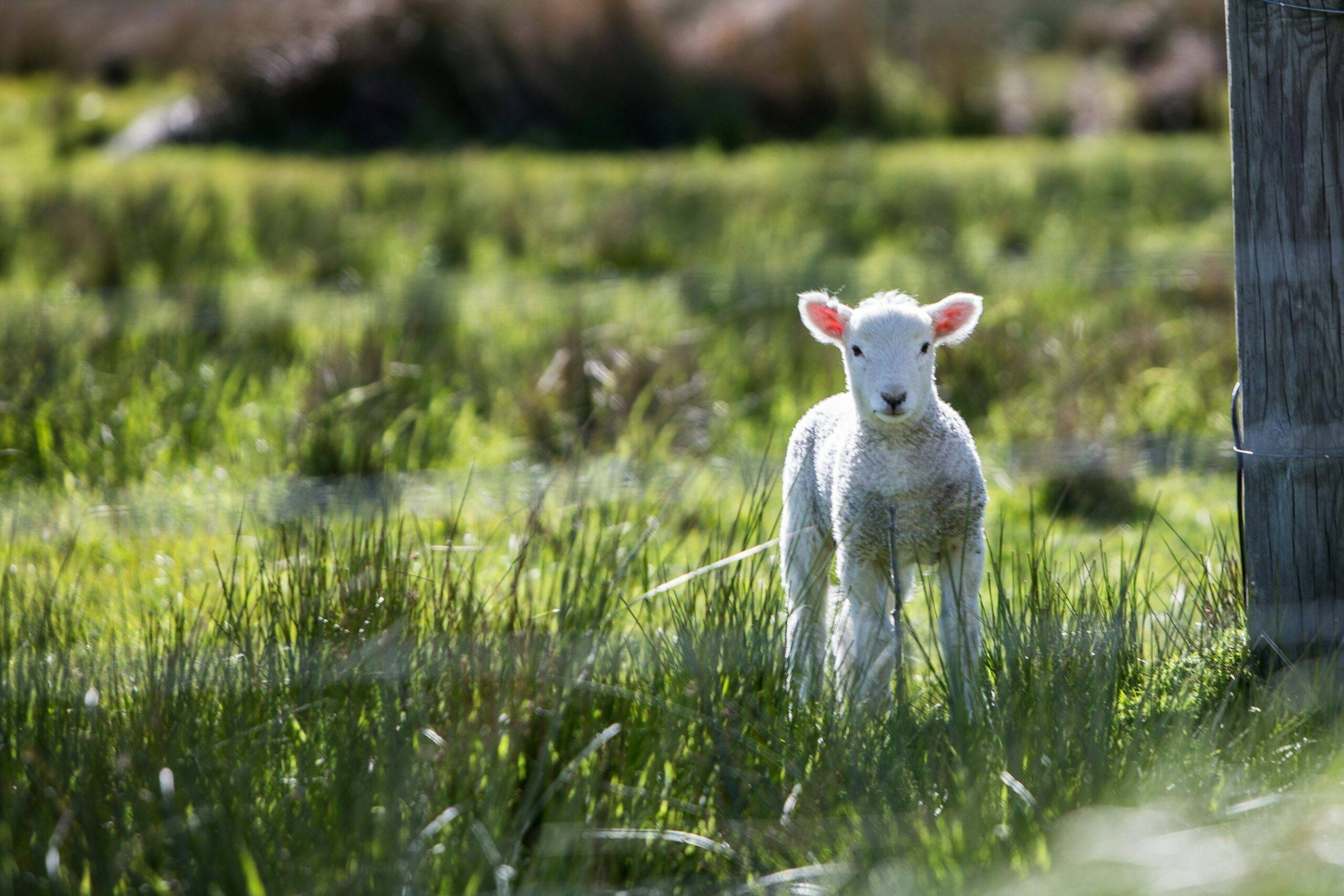Decoding Bulgarian Sheep Milk Cheese
Let’s embark on a tantalizing journey to uncover the secrets and savor the unique taste of Bulgarian sheep milk cheese! Known for its strong flavor and distinct taste, this cheese is a culinary delight that adds a creamy and savory element to various dishes.
The Unique Taste of Bulgarian Cheese
Bulgarian sheep milk cheese, also known as “sirene,” is a traditional Bulgarian cheese made from sheep’s milk (Nahda). It has a distinct taste and texture, with a slightly salty and tangy flavor that sets it apart. Although similar to feta cheese, Bulgarian white cheese cannot be legally called “feta” due to the protected designation of origin (PDO) status of feta cheese.
This versatile cheese can be crumbled over salads, used as a filling for pastries, or melted in various dishes. It’s a staple in Bulgarian cuisine and is enjoyed by cheese lovers worldwide (Cheesemaking.com). Whether it’s the crumbly texture paired with tomatoes and cucumbers in traditional Bulgarian cuisine or the creamy element it adds to banitsa, the Bulgarian sheep milk cheese offers an unforgettable gastronomic experience.
Health Benefits of Bulgarian Cheese
Beyond its unique taste, Bulgarian sheep milk cheese also boasts numerous health benefits. Made from sheep’s milk, it offers higher nutritional value compared to cheeses made from cow’s or goat’s milk (Woodlands Dairy).
Sheep’s milk is known to be rich in vitamins and minerals, including Vitamin B12, calcium, and magnesium, making Bulgarian sheep milk cheese a nutritious addition to your meals. The high protein content in the cheese also contributes to its health benefits, making it a great choice for those seeking a protein-rich diet.
Whether you’re a culinary enthusiast, a cheese lover, or someone looking to explore new flavors and cuisines, Bulgarian sheep milk cheese is a must-try. Check out our guide on where to buy Bulgarian feta to get your hands on this delicious cheese and start experiencing its unique flavors and health benefits.
Bulgarian Cheese in Traditional Cuisine
Bulgarian sheep milk cheese, also known as “sirene,” is a quintessential ingredient in traditional Bulgarian cuisine. This cheese lends its unique flavor and texture to a variety of dishes, making it an indispensable part of the Bulgarian culinary experience (Nahda).
Role in Bulgarian Breakfast
A typical Bulgarian breakfast often features the beloved cheese in a dish known as banitsa. This scrumptious pastry is made by layering filo pastry sheets with a mixture of eggs, Bulgarian sheep milk cheese, and yogurt (196 Flavors).
Banitsa is not just a breakfast staple, but also a common snack enjoyed throughout the day. Its delicate balance of flaky pastry and creamy cheese filling is a delight to the palate, making it a favorite among both locals and visitors alike. For a taste of this traditional delight, check out our article on Bulgarian banitsa.
Use in Holiday Celebrations
The versatility of Bulgarian cheese extends beyond breakfast. It also plays a starring role in holiday celebrations and special occasions. The rich and full-bodied flavor of Bulgarian sheep milk cheese makes it a perfect ingredient for festive dishes.
One such dish is the Shopska salad, a refreshing vegetable salad topped with a generous helping of Bulgarian cheese. The combination of crisp vegetables and creamy cheese creates a symphony of taste and texture that is hard to resist.
In summary, Bulgarian sheep milk cheese is more than just a culinary ingredient; it’s a piece of Bulgaria’s rich and vibrant culinary heritage. Whether enjoyed in a hearty breakfast banitsa or a festive Shopska salad, this cheese is sure to delight your taste buds with its unique flavor and creamy texture. Explore more about the Bulgarian sheep cheese and its role in traditional Bulgarian cuisine.
The Making of Bulgarian Sheep Milk Cheese
The magic of Bulgarian sheep milk cheese or “sirene” as locals call it, comes to life through an intricate process that has been passed down through generations. Let’s delve into the secret ingredient and the artisanal process that gives birth to this amazing cheese.
Sheep Milk: The Secret Ingredient
The secret behind the unique taste of Bulgarian sheep milk cheese lies in the quality of the milk used. The milk comes from local Bulgarian sheep breeds, such as the Karakachan and the Tsigai. These sheep graze on the lush pastures of the Bulgarian mountains, imbibing the rich flora that gives the milk its distinct flavor profile.
Moreover, sheep milk is known for its high nutritional value. It’s rich in vitamins, minerals, and beneficial bacteria, making Bulgarian sheep milk cheese not just a culinary delight but also a healthy choice.
The Artisanal Process
The making of Bulgarian sheep milk cheese is a labor of love that involves a traditional and artisanal process. It begins with the collection of fresh sheep milk, which is then gently heated. Rennet, a complex set of enzymes, is added to the milk to initiate the curdling process.
Once the milk curdles, the curds are cut into small pieces and strained to remove the whey. The strained curds are then placed in molds and pressed to give them their characteristic shape. The cheese is then submerged in a brine solution, which imparts it with its unique salty flavor and helps it to mature.
This cheese-making process, passed down through generations, is a testament to Bulgaria’s rich culinary heritage. The end result is a cheese that is tangy, slightly sour, and utterly delicious, perfect for traditional Bulgarian dishes like banitsa, a savory pastry filled with cheese and eggs (Nahda).
Whether you’re a cheese lover or a culinary enthusiast, Bulgarian sheep milk cheese is a must-try. It’s a journey of flavors, from the rich Bulgarian pastures to your palate. So why not give it a try? Check out our guide on where to buy Bulgarian feta to get started on your Bulgarian cheese adventure.
Substitutes for Bulgarian Sheep Milk Cheese
There’s a special place in the heart of cheese lovers for the unique, tangy flavor of Bulgarian sheep milk cheese. But what do you do when that all-important ingredient is missing from your local grocery store shelves? Fear not, fellow culinary enthusiasts! There are worthy substitutes to this delectable cheese.
When Bulgarian Cheese is Unavailable
While the taste and texture of Bulgarian cheese are unique, it’s not always readily available in all regions or markets. But don’t let this minor obstacle keep you from savoring the flavors of traditional Bulgarian cuisine! If you find yourself unable to lay hands on this tangy delight, there’s no need to panic.
According to 196 Flavors, Bulgarian sheep milk cheese can be substituted with feta cheese or another soft white cheese. These alternatives can mimic the crumbly texture and tangy taste of Bulgarian sheep milk cheese, making them a feasible alternative in your culinary endeavors.
Choosing the Right Substitute
When choosing a substitute for Bulgarian sheep milk cheese, it’s essential to find one that not only mimics the flavor and texture but also complements the dish you’re preparing.
Feta cheese, for instance, is a popular substitute. While Bulgarian white cheese cannot be legally called “feta” due to the protected designation of origin (PDO) status of feta cheese, they share a similar flavor profile. Thus, feta can often step in as an adequate stand-in for Bulgarian white cheese in most recipes.
Another potential substitute is a different type of soft, white cheese. Depending on the cheese’s creaminess, tanginess, and crumbliness, it can substitute Bulgarian sheep milk cheese in various dishes, from salads to pastries, and even main courses.
Remember, the goal of using a substitute is to capture the essence and spirit of the original ingredient. So, whether you’re using feta or any other soft, white cheese, aim for the one that brings you the closest to the savory goodness of Bulgarian sheep milk cheese.
Should you find yourself yearning for the authentic taste, refer to our guide on where to buy Bulgarian feta to find your nearest source of Bulgarian cheese goodness. Happy cooking!
Places to Buy Bulgarian Sheep Milk Cheese
You’ve learned about the unique taste, health benefits, and traditional usage of Bulgarian sheep milk cheese, also known as “sirene” or “Bryndza”. Now you’re probably wondering, “Where can I buy this delightful cheese to experience its rich flavor?” Don’t worry, we’ve got you covered!
Local Bulgarian Stores
If you live in a city with a Bulgarian community, chances are, you may find local Bulgarian stores selling authentic Bulgarian sheep milk cheese. These small, often family-run businesses import cheese directly from Bulgaria, ensuring that you get an authentic taste of this traditional delicacy. Don’t be shy to ask the store owners for recommendations or tips on how to best enjoy the cheese. They would likely be more than happy to share their love for Bulgarian cheese with you.
Online Cheese Markets
For those who are not fortunate enough to have a local Bulgarian store nearby, don’t lose heart! The internet comes to the rescue. Numerous online cheese markets offer Bulgarian sheep milk cheese, delivering it right to your doorstep.
Some of these online platforms provide detailed descriptions of the cheese, including its origin, taste profile, and pairings. This can be especially helpful if you’re new to Bulgarian cheese and want to learn more before making a purchase.
Before buying, always check customer reviews and ratings to ensure the quality of the product and reliability of the seller. It’s also a good idea to compare prices across different platforms to get the best deal.
Whether you buy your Bulgarian sheep milk cheese locally or online, one thing is for sure: once you’ve tasted this wonderful cheese, you’ll find yourself coming back for more. Its versatile nature means you can enjoy it on its own, crumble it on salads, melt it on pizzas, or use it in various recipes like banitsa or shopska salad.
Ready to embark on your culinary journey with Bulgarian cheese? Visit our pages on where to buy Bulgarian feta and Bulgarian feta cheese near me to discover more places where you can purchase this delicious cheese. Enjoy the journey from pasture to palate!
Using Bulgarian Cheese in Your Kitchen
Now that you’ve discovered the joy of Bulgarian sheep milk cheese, you’re probably eager to include it in your culinary adventures. This cheese can elevate any dish with its unique flavor profile. Let’s explore how you can use Bulgarian cheese in salads and pastries.
Bulgarian Cheese in Salads
Bulgarian sheep milk cheese is a flavorful addition to salads. Its crumbly texture and tangy flavor work exceptionally well in Bulgarian traditional dishes such as the Shopska salad, a delectable vegetable salad with cheese (Nahda).
But don’t just stop at traditional dishes! The versatility of this cheese allows it to fit seamlessly into any salad recipe. Try it crumbled on top of a fresh spring mix, paired with juicy tomatoes, crisp cucumbers, and a light vinaigrette; you’ll have a salad that’s out of this world! For more inspiration on how to use Bulgarian white cheese in salads, check out our collection of Bulgarian cheese recipes.
Bulgarian Cheese in Pastries
If you thought Bulgarian cheese was only for savory dishes, think again! It’s a key ingredient in some of the most delightful pastries. One traditional Bulgarian pastry that shines with the addition of this cheese is Banitsa (Slow Travel Blog). This scrumptious pastry is made with layers of filo dough, filled with a mixture of Bulgarian cheese, eggs, and yogurt.
The saltiness of the cheese perfectly balances the buttery filo dough, creating a pastry that you’ll be coming back to again and again. Aside from Banitsa, Bulgarian sheep cheese can be used as a filling for a variety of pastries, both sweet and savory, adding a richness that’s hard to beat. Looking for more ways to use Bulgarian sheep cheese in pastries? Check out our pastry recipes featuring Bulgarian cheese.
Whether you’re a culinary enthusiast or a home cook just looking to try something new, Bulgarian sheep milk cheese can add a delightful twist to your dishes. So go ahead, add some Bulgarian cheese to your pantry and let the culinary adventure begin! For guidance on where to buy this cheese, visit our guide on where to buy Bulgarian feta.




Leave a Reply